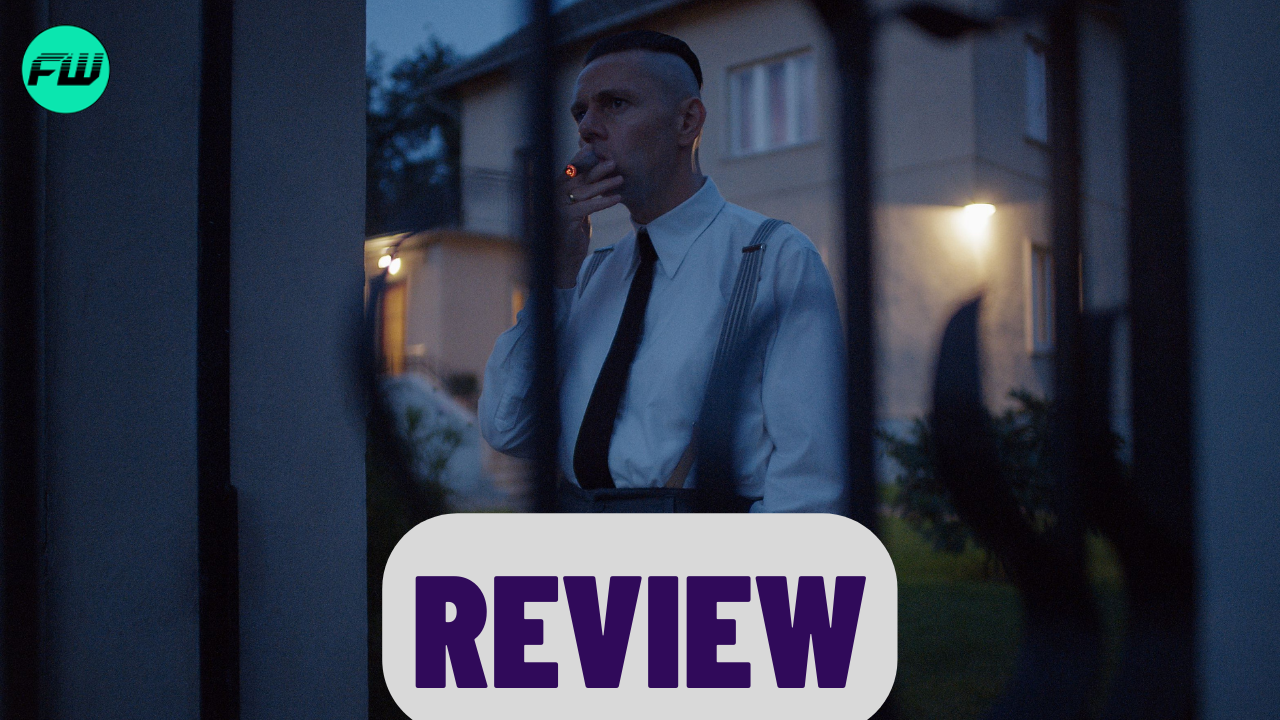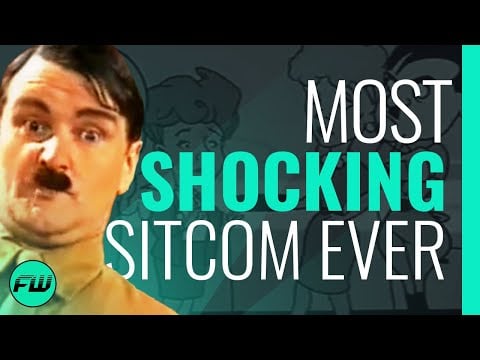I seriously pondered whether I should write about The Zone of Interest. The overwhelmingly positive reaction and intensive use of the term “masterpiece” made me wary of an opinion that could maybe not follow the exact same line of thought. It’s a film as challenging to watch as it is to analyze, having in mind that the central theme is connected to the Holocaust, namely the living experience of a German family whose “neighbor” is merely the most infamous concentration camp in human history, Auschwitz.
Jonathan Glazer (Under the Skin) loosely bases his screenplay on the identically titled novel by Martin Amis to portray the shocking apathy of the protagonist family, creating an atmospheric slow-burn that will leave no one indifferent. I must emphasize the fact that The Zone of Interest isn’t an accessible movie. For those viewers who look at cinema as an escape from the real problems of our world or simply a place of pure frivolous entertainment, I cannot recommend such a heavy, depressing, frustrating, uncomfortable, distressing watch.
The Zone of Interest Critique

Also Read: Poor Things Venice Film Festival Review
It’s very easy for a film about the Holocaust to fall into cheap exploitation of the suffering and pain that marked these dark years, especially nowadays after so many movies, books, documentaries, plays, museums, and other events dedicated to the countless stories from that time. The Zone of Interest is one of the few cinematographic adaptations that manages to impressively respect the victims, refusing to show any visible physical violence. The constructed sound environment is more than enough to torment viewers.
Mica Levi’s (Mangrove) score is subtly powerful, but the real discomfort lies in the sound production. The noise of the crematoriums, the screams of incinerated Jews, the ashes decorating the house as if these were snowflakes, the sirens… The Zone of Interest doesn’t show a single shot inside Auschwitz, nor does it need to. Any audience member has enough imaginative capacity and basic historical knowledge to understand what is going on behind the barbed wire wall.
Łukasz Żal’s (I’m Thinking of Ending Things) cinematography is equally impactful. Filming took place in the real house using static cameras placed around it, allowing the actors to improvise much of their time in there, especially outdoors. However, The Zone of Interest stands out for the claustrophobic feeling that encompasses the entire work. No matter whether the characters are inside or outside the house, the inhuman coldness and blatant lack of guilt are shockingly overwhelming.
This is The Zone of Interest. Just under two hours of a collection of monotonous, repetitive sequences of the German family’s mundane day-to-day life, as if the surrounding circumstances were insignificant. From picnics by the river to well-filled meals, not forgetting harmless playground games in the garden, and peaceful nights with no problems falling asleep, the feeling of hatred towards all members of the family – including some children – grows exponentially as time goes on.
There are some brief moments of hope and human conscience that Glazer does well to portray, avoiding the mistake of blaming every German on the face of the Earth as equally responsible for what happened. A visiting grandmother can’t bear the nights overlooking the crematoriums. One of the children always resorts to isolated rooms on the ground floor to avoid hearing the noises of the concentration camp. And a maid makes the effort to go out at night to scatter apples in the outer areas of Auschwitz, where Jews were forced to work as slaves in the construction of the railway line.
Nevertheless, the complacency with what happens in the “neighbor’s home” remains. The Zone of Interest ends with an emotionally powerful, extremely thought-provoking transition, comparing the feeling of indifference that marks the stoic, expressionless characters – the male protagonist, Rudolf Höss, carries more affection for animals than for human beings – with our present. The terrifying dispassion that surrounds the film is undeniably seen today in our current world, no doubt about it – I could easily mention the one major piece of evidence to prove this, but I don’t think I really need to. The titular German family isn’t just a representation of other German families or German citizens, but of the entire world. You’d be surprised by the number of people I saw in a Holocaust museum just skipping by everything, abruptly ending an hour-long visit in ten minutes. Most of us don’t truly care about the tragedies that affect millions of people across the globe, so global apathy does persist. A small part of me believes Glazer “stretched the rope” a little bit by giving room for the unfair tragedy comparison discourse that I hope never even kicks off, but there’s something about that last scene that doesn’t fully land with me.

Upon leaving my session, I couldn’t avoid reactions that I personally had difficulty dealing with. The Zone of Interest isn’t, at all, a movie that warrants someone leaving the theater exclaiming effusively how much they loved it. The universal acclaim is more than understandable and expected, but it will never cease to seem strange to me that someone would use the same verbs and adjectives they apply to describe the latest action blockbuster or a surprising comedy. It’s a type of film that I respect and admire more than I enjoy, if any part of me can truly enjoy a movie like this. From a filmmaking standpoint, it’s remarkable. But…
It’s a complicated personal dilemma. On one hand, it’s unfair to criticize a filmmaker for being able to bring his vision and intention to the big screen in an undeniably impactful, technically brilliant manner. I spent every second of The Zone of Interest hating virtually every character, feeling all kinds of negative emotions, and I ended up absolutely wrecked. Exhausted from so much genuinely unpleasant discomfort, aggravating frustration, and toxic incomprehension. All of this was purposefully provoked by Glazer, his technical team, and the cast.
On the other hand, it’s inevitable to wonder to what extent The Zone of Interest abuses its monotony and insistence on delivering a message that’s clear as water from the first few minutes. There are no character arcs or relevant plot points. As mentioned above, it’s a simple collection of mundane sequences to demonstrate the complacency – not to be confused with ignorance – of everyone involved. Whenever we talk about films exploring real events and their victims, we always fall into the visual representation of that same suffering. But if the movie’s goal is to convey something that’s set in stone from an early stage, how much does the lengthening of the total runtime contribute to this same exploitation?
I’m not going to rate The Zone of Interest. The truth is that listening to several people – critics at that – discussing more about how many stars the film deserves instead of actually debating what Glazer communicated in such a powerful, unforgettable way, just made my frustration levels increase even more after leaving the theater. I can’t “evaluate” this movie in the same way I do with most of the films I cover during the year. Furthermore, words are worth much more than any star, number, or other type of rating. A movie like this cannot and should not be discussed through apps, aggregators, or thumbs.
In Conclusion
The Zone of Interest is one of the most memorable, remarkable films of the last few years. Jonathan Glazer achieves a fascinating dissociation between the general tone of the movie and the mundane actions of the protagonist family, portraying the unbelievably shocking global apathy in the face of the greatest crime in human history. An extremely complicated viewing, excruciatingly frustrating, full of negative emotions, and not very accessible to the general public. The atmospheric, static cinematography, together with the powerful score and especially the background sounds that will haunt any viewer, justify the use of the term “masterpiece” to technically describe the film. But more important than discussing technicalities and the explored themes, is learning from the mistakes of the past that sadly insist on persevering…
Follow us for more entertainment coverage on Facebook, Twitter, Instagram, and YouTube.



